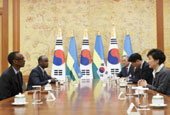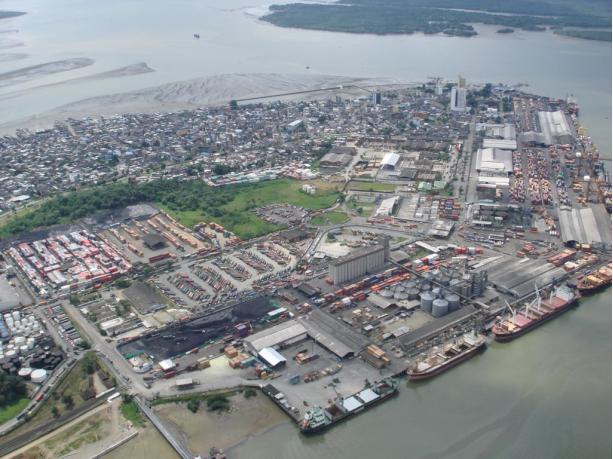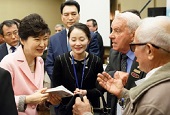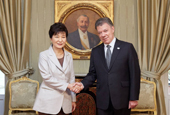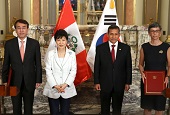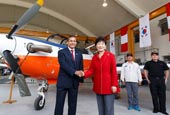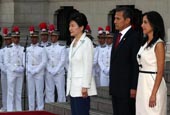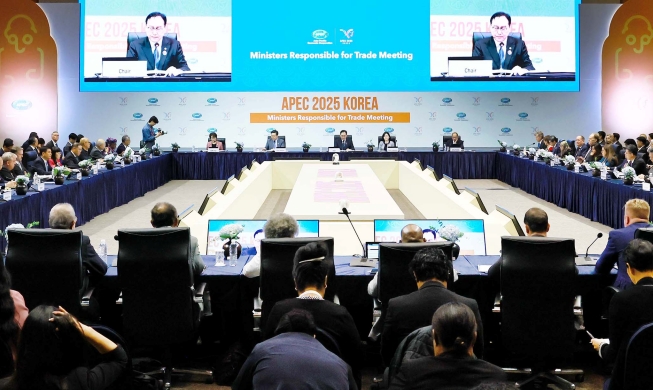Korea and African, Caribbean and Latin American nations have come together to share their government administration experiences.
Over 70 government officials, including provincial governors and mayors, gathered on June 4 at the Rwanda Management Institute (RMI), a training center for government employees and officials that is located one-hour from Kigali, the capital of Rwanda. The meeting was to launch bilateral administrative cooperation between Korea and Rwanda.
"Developing the capability of the public sector is necessary to provide our citizens with high-quality services," said Rwandan Prime Minister Anastase Murekezi in his congratulatory remarks.
Prime Minister Murekezi called the human resources development project, "the fruit of cooperation between Korea and Rwanda."
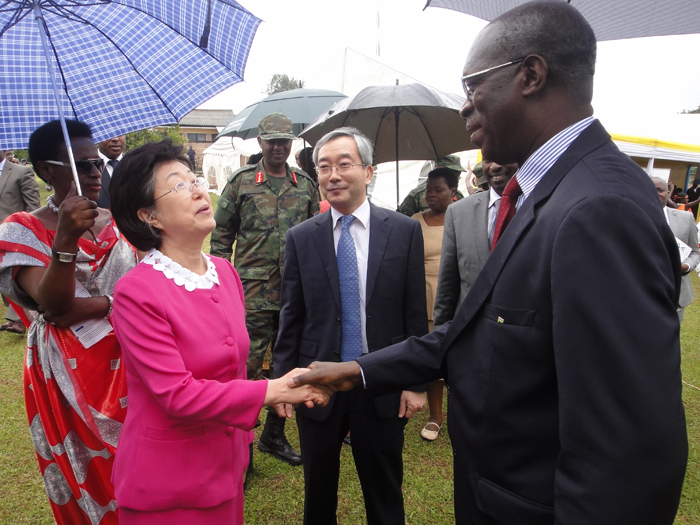
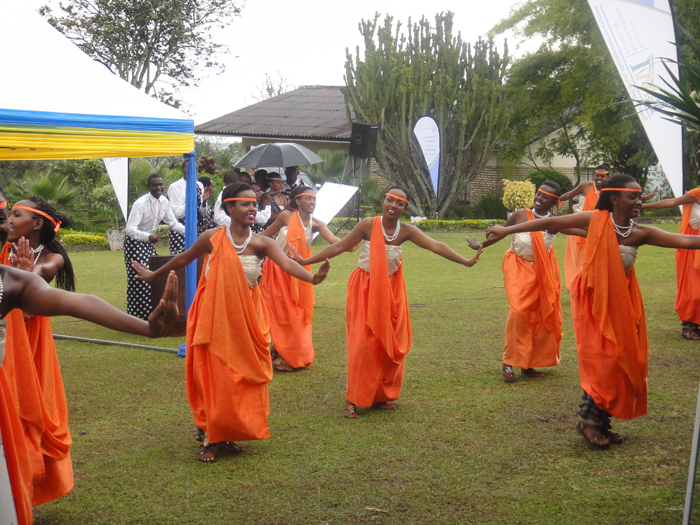
The program is to provide online education about administration activities for 10,000 public servants, equivalent to 8 percent of the 120,000 government employees in Rwanda. The program continues until December 2017.
Most training on administration procedures takes place offline at the RMI, but this program will be offered online. The Korea Institute of Public Administration (KIPA), which is responsible for the program, is in discussion with the United Nations Development Programme (UNDP) to expand the program.
Rwanda suffered from a civil war between 1990 and 1994, and a genocide as well in 1994, and over 1 million people were massacred in the connected conflicts. However, peace has taken root in the country and now its government is pursuing its "Vision 2020," a mid- to long-term development program.
As part of the program, KIPA plans to offer Internet-related equipment to the Rwandan government and to help develop training programs suitable for the country, including accounting systems. It will also analyze the RMI's organizational structure, try to improve existing training programs at the RMI and take part in developing new programs.
Separately, public servants at regional governments from across the Caribbean, Latin America and Africa recently came to Korea to share the country's development experiences, including building online government services, the New Village Movement (Saemaul Undong) and strategies for regional development.
Nine regional government officials from Colombia, Ecuador, Jamaica, Peru and Sudan will participate in the Local Administration Capacity Building workshop being held at the Local Government Officials Development Institute (LOGODI) in Wanju-gun County, Jeollabuk-do (North Jeolla Province), from June 9 to June 27. The program consists of lectures on regional development policies, seminars, field trips and visits to government offices.
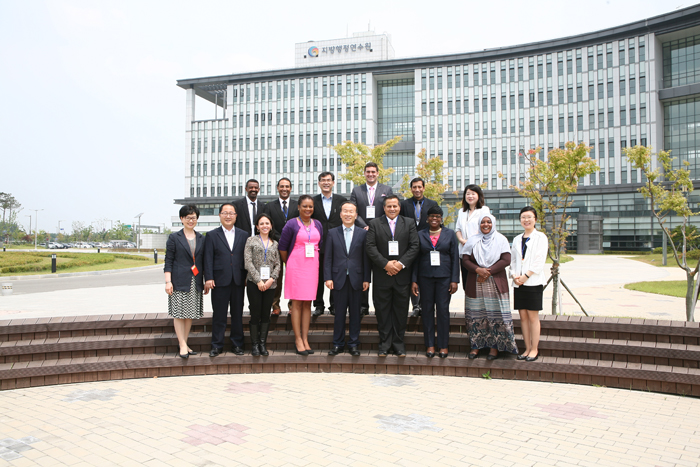
Caribbean, Latin American and African nations have shown particular interest in and asked for cooperation on online government services, which is one of the subjects in the ongoing workshops. Colombia and Ecuador have already adopted Korea's transportation fare card systems and online customs clearance systems. The Korean government also signed a memorandum of understanding with Peru to cooperate on building online government services in the South American nation.
These nine officials will visit the Ministry of Government Affairs and Home Administration, learn about regional development strategies and share their many successful examples. Finally, they will have a session to discuss how to apply what they have learned to administrative systems back in their home countries.
By Limb Jae-un
Korea.net Staff Writer
Photos courtesy of the LOGODI, the KIPA
jun2@korea.kr
Over 70 government officials, including provincial governors and mayors, gathered on June 4 at the Rwanda Management Institute (RMI), a training center for government employees and officials that is located one-hour from Kigali, the capital of Rwanda. The meeting was to launch bilateral administrative cooperation between Korea and Rwanda.
"Developing the capability of the public sector is necessary to provide our citizens with high-quality services," said Rwandan Prime Minister Anastase Murekezi in his congratulatory remarks.
Prime Minister Murekezi called the human resources development project, "the fruit of cooperation between Korea and Rwanda."

Lee Eun-jae, president of KIPA, and Rwandan Prime Minister Anastase Murekezi shake hands at the RMI.

A traditional dance is preformed to mark the start of a human resources development program.
The program is to provide online education about administration activities for 10,000 public servants, equivalent to 8 percent of the 120,000 government employees in Rwanda. The program continues until December 2017.
Most training on administration procedures takes place offline at the RMI, but this program will be offered online. The Korea Institute of Public Administration (KIPA), which is responsible for the program, is in discussion with the United Nations Development Programme (UNDP) to expand the program.
Rwanda suffered from a civil war between 1990 and 1994, and a genocide as well in 1994, and over 1 million people were massacred in the connected conflicts. However, peace has taken root in the country and now its government is pursuing its "Vision 2020," a mid- to long-term development program.
As part of the program, KIPA plans to offer Internet-related equipment to the Rwandan government and to help develop training programs suitable for the country, including accounting systems. It will also analyze the RMI's organizational structure, try to improve existing training programs at the RMI and take part in developing new programs.
Separately, public servants at regional governments from across the Caribbean, Latin America and Africa recently came to Korea to share the country's development experiences, including building online government services, the New Village Movement (Saemaul Undong) and strategies for regional development.
Nine regional government officials from Colombia, Ecuador, Jamaica, Peru and Sudan will participate in the Local Administration Capacity Building workshop being held at the Local Government Officials Development Institute (LOGODI) in Wanju-gun County, Jeollabuk-do (North Jeolla Province), from June 9 to June 27. The program consists of lectures on regional development policies, seminars, field trips and visits to government offices.

Nine regional government officials from Central America, Latin America and Africa participate in the Local Administration Capacity Building workshop held at the LOGODI. They are learning about Korea's online government services, the New Village Movement and regional development strategies.
Caribbean, Latin American and African nations have shown particular interest in and asked for cooperation on online government services, which is one of the subjects in the ongoing workshops. Colombia and Ecuador have already adopted Korea's transportation fare card systems and online customs clearance systems. The Korean government also signed a memorandum of understanding with Peru to cooperate on building online government services in the South American nation.
These nine officials will visit the Ministry of Government Affairs and Home Administration, learn about regional development strategies and share their many successful examples. Finally, they will have a session to discuss how to apply what they have learned to administrative systems back in their home countries.
By Limb Jae-un
Korea.net Staff Writer
Photos courtesy of the LOGODI, the KIPA
jun2@korea.kr
